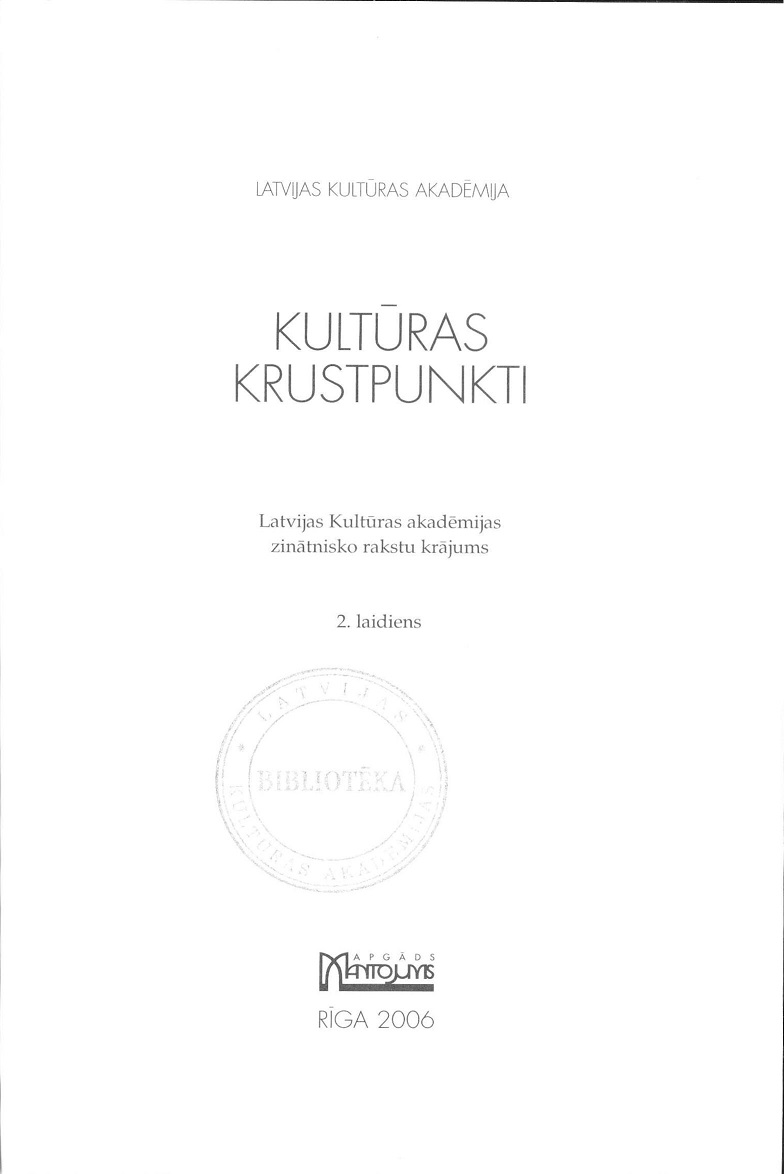Bertolta Brehta teātra modelis Pētera Šteina iestudējumos
The Model of Bertholt Brecht's Theatre in the Stage Productions of Peter Stein
Author(s): Līga UlberteSubject(s): Theatre, Dance, Performing Arts, Cultural history, History of Art
Published by: Latvijas Kultūras akadēmija
Keywords: Bertholt Brecht; theatre; stage production; Peter Stein; author’s style; dramaturgy;
Summary/Abstract: In the creations of German director Peter Stein there can be some periods singled out, when he has intensively focused on the research of a certain style or author's dramaturgy, consistently experimenting with different types of theatre aesthetics. In the beginning of his activities as a stage director, Stein consistently used the principles of Brechtian epic theatre for revealing both the content and form. In the 60s and 70s of the 20th century, Stein continued the traditions of German political theatre of the 20th century with his productions like B. Brecht's In the jungle of the Cities, M. Gorky's Mother and P. Weiss's Vietnam Discourse. And still, the open revolutionary ideas were not so appealing to Stein himself, therefore those productions, where Stein focused on resolving universal humanitarian and social issues by using the techniques of epic theatre and dramaturgy of a totally different type, were more interesting. J.W. Goethe's Torquato Tasso (1969) and Kleist's The Prince of Homburg (1972) can be considered as the most conceptual works of Stein's epic period. The purpose of all stage productions of Stein's epic period is to demonstrate how the social rules prevailing in the society impact human behaviour. At present, the director himself views this period of his creations ironically, only as an experimental experience of his youth.
Journal: Culture Crossroads
- Issue Year: 2/2006
- Issue No: 1
- Page Range: 349-355
- Page Count: 7
- Language: Latvian

